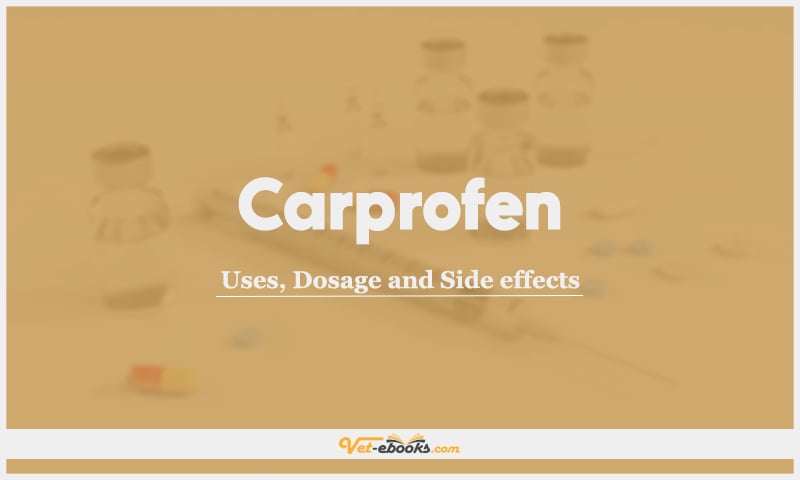Carprofen For Dogs and Cats: Uses, Dosage and Side Effects
Overview
Inhibits COX-2, which reduces the amount of prostaglandins that are produced and contributes to inflammation.
Uses of Carprofen
• Control of postoperative pain and inflammation following surgery.
• Reduction of chronic inflammation, e.g. degenerative joint disease, osteoarthritis.
Dose of Carprofen in Dogs and Cats
Dogs:
- 4.4 mg/kg i.v., s.c. preoperatively or at the time of anesthetic induction (single dose should provide analgesia for up to 24 hours.)
- Continued analgesia can be provided orally at 4.4 mg/kg/day, in single or divided doses for up to 5 days after injection.
- In dogs started on oral medication, subject to clinical response the dose may be reduced to 2 mg/kg/day, single dose, after 7 days.
Cats:
4 mg/kg i.v., s.c., single dose preoperatively or at the time of anesthetic induction.
Drug Dosage Calculator
You Should Give:
Side Effects of Carprofen in Dogs and Cats
- Mild GI signs (vomiting, diarrhea, constipation, inappetence) may occur in all animals after NSAID administration.
- Stop therapy if this persists beyond 1–2 days.
- A 3–5 day wash-out period should be allowed before starting another NSAID after cessation of therapy.
- Stop therapy immediately if GI bleeding is suspected.
Contraindications of Carprofen in Dogs and Cats
- Do not give to dehydrated, hypovolaemic or hypotensive patients or those with GI disease or blood clotting abnormalities.
- Administration of carprofen to animals with renal disease must be carefully evaluated and is not advisable in the perioperative period.
- Do not give to pregnant animals or animals <6 weeks old.
Some Notes:
- Different NSAIDs should not be administered within 24 hours of each other or glucocorticoids as they are more ulcerogenic when used concurrently.
- The nephrotoxic tendencies of all NSAIDs are significantly increased when administered concurrently with other nephrotoxic agents, e.g. aminoglycosides.
- In cats, carprofen is only licensed as a single perioperative dose for the control of postoperative pain.
- Carprofen also has antipyretic effects.
- All NSAIDs should be administered cautiously in the perioperative period.
- Although carprofen preferentially inhibits COX-2, it may still adversely affect renal perfusion during periods of hypotension.
- If hypotension during anesthesia is anticipated, delay carprofen administration until the animal is fully recovered from anesthesia and normotensive.
- The liver disease will prolong the metabolism of carprofen, leading to the potential for drug accumulation and overdose with repeated dosing.
- Prolonged long-term treatment should be under veterinary supervision.
- In cats, due to the longer half-life and narrower therapeutic index, particular care should be taken not to exceed the recommended dose and the use of a 1 ml graduated syringe is recommended to measure the dose accurately.
- Tablets are not authorized for use in cats.
Tip
Do You Want To Increase Your Veterinary Knowledge and Practical Skills?
You Can Now Browse and Download +3000 Books For Veterinary Professionals & Students Online.
Download Veterinary Books


























